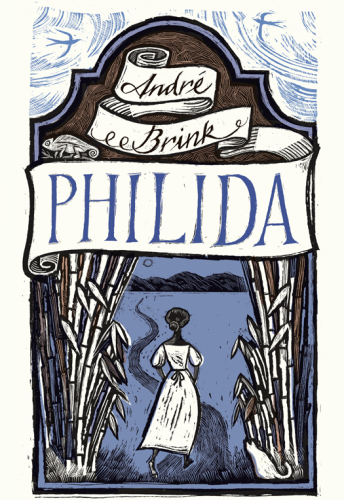
Philida
Vintage International
کتاب های مرتبط
- اطلاعات
- نقد و بررسی
- دیدگاه کاربران
نقد و بررسی

Starred review from November 1, 2012
Longlisted for the Man Booker Prize, this tale of slavery, identity and the wages of sin is based in part on Brink's (A Fork in the Road, 2009, etc.) family history. An impossible love story, it is not impossible in the traditional sense of love between mismatched partners, but because it shows how no love is possible between persons fundamentally unequal. Philida's voice is the first voice we hear, and hers is a voice to attend to: idiomatic, lyrical, querulous, searching. Philida is on her way to lodge a complaint against Frans. He made promises, among others, to seek her manumission. She bore his children. But it appears he deceived her, when in fact he deceived himself. Francois "Frans" Brink, the feckless son of the hardheaded patriarch of Zandvliet, is not worthy of the slave Philida. How Frans responds to this complaint changes Philida's mind and heart, but the larger socioeconomic conditions have the more lasting effect. The book begins in 1832; the slaves were "freed" in the colonies in 1834. Writing about his own family, Brink is silent, eloquently so, on its rampant hypocrisy, epitomized by Petronella, known as Ouma Nella. She is Philida's protector but also the mother of Cornelis Brink, Frans' father and Philida's owner. The book traces the lacerating trajectory of the sins of parents, parents' scars like open wounds on their children's bodies. There is an astonishing frankness about the facts of life and a visionary lyricism in relation to these cruel facts. The "Acknowledgements" section details the genesis of the novel. In its way, it is as thrilling as the book itself. Extraordinary.
COPYRIGHT(2012) Kirkus Reviews, ALL RIGHTS RESERVED.

January 1, 2013
Understatement: this book is complicated. It's set on South Africa's Cape ("Caab") in the 1830s as slavery is being abolished, and four characters and one outsider narrate the action. Philida is the most sympathetic, seeking justice when a promise of freedom from her "baas" with whom she bore four children is reneged on, and she is put to auction. She tells her story with passion and wit, but her dialect can be off-putting. Other narrators include the slave owners--who are not very generous in their appraisals of the human value of their chattel. Interspersed are folktales, beatings (one fatal), musings on the economics of wine farming at the end of slavery, history lessons, topographical description, and lots more. Brink (A Dry White Season) is again Booker-longlisted here, dealing with both African and family history (the name of the slave-owning family? Brink.). It's a nuanced book of twists and turns, and Brink manages to generate sympathy for his ancestors, although not much (not that they deserve a lot). VERDICT For readers with lots of patience and a willingness to be interested in the time, place, theme, and so on.--Robert E. Brown, Oswego, NY
Copyright 2013 Library Journal, LLC Used with permission.

December 1, 2012
Eminent white Afrikaans writer Brink tells a story that is rooted in his own family's ancestry and set in the Cape in the early nineteenth century, before the abolition of slavery. Philida is raped by her white farm-master, Cornelis. Later his young son, Frans, has his first sex with her. Unlike his father, Frans loves her and wants to marry her, and she loves him as much as she loves her children. Frans is reluctant to marry the wealthy white girl his family has chosen for him, even if it will save his father from bankruptcy. With alternating present-tense viewpoints, the aching personal drama is set against the history of lechery, power, and violent abuse, the constant beatings, the breeding of slaves for auction, and always, for Philida, the wrenching family separation as she tries to prevent the selling of her children. This stirring novel opens up the horror, seldom addressed, of the oppression long before apartheid was the law.(Reprinted with permission of Booklist, copyright 2012, American Library Association.)

























دیدگاه کاربران